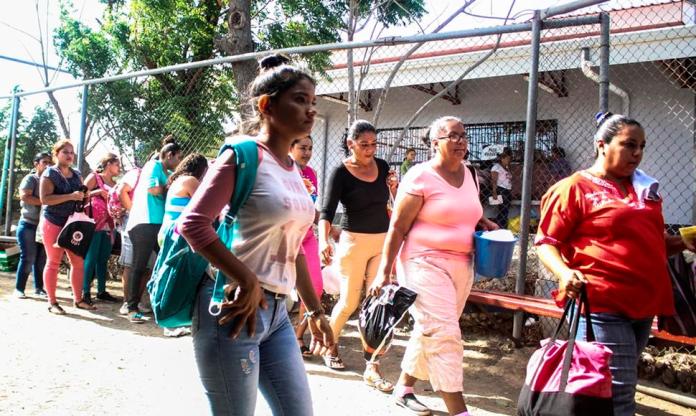Dr. Carla Sequeira, director of the area of complaints area of the Permanent Commission of Human Rights, has received a series of complaints about overreaching imposed by the staff of the La Modelo prison against family members who come to see imprisoned protesters.

She also recounts some episodes that she has personally experienced during the visit with her husband, Jaime Ampié Toledo, the human rights activist who was criminalized by the government for his denouncement during the protests.
According to Sequeira, the security measures at the prison are extreme and increase for the relatives whose prisoner is in the maximum security cells.
“Personally I have not experienced much, but once, during the search, they sent me to take off my pants. This is nothing compared to the denigrating treatment that other women denounce. This happens not only for conjugal visits but also for family visits and the worst is for the political prisoners of the 300 block, who have no physical contact during family visits,” the activist told El Nuevo Diario.

Sequeira continues that in the 300 there are not only political prisoners, but also dangerous common prisoners who, and you can feel a difference.
Another major problem at the prison are the rules, rules that change constantly, without explanation as to why.
Then there are many searches. Visitors of common prisoners receive less attention than visitors of the political prisoners, who are subjected to extreme searches for hidden objects.

“They check the entire body, pockets, bras, they touch your breasts and if the official is not satisfied they move you to a side room where you have to strip,” said Sequeira.
The activist says humiliating searches, including body cavity searches, have been denounced by women. She cites the example of a complaint with the CPDH, of a woman on her period who was required to disrobe and remove her sanitary napkin, to verify she was not carrying some type of object not allowed.
Relatives are at the mercy of the prison guards, who will deny the visit if one does not comply with their demands,
“Also if you complain, it could mean consequences for the inmate. There is a fury, especially against female visitors. The denigrating part and the abuse of power are focused on women on the part of the officials,” says Sequeira.

Of the differences on the outside, relatives visiting common prisoners get priority, meanwhile, the rest have to wait regardless if they arrived first or early in the morning. “Thet separate and prioritize”, says Sequiera.
According to Sequeira, men are not subjected to the same treatment at the La Esperanza women’s prison. “The searches at the La Modelo are to humiliate and degrade women,” says Sequeira.

You must be logged in to post a comment.